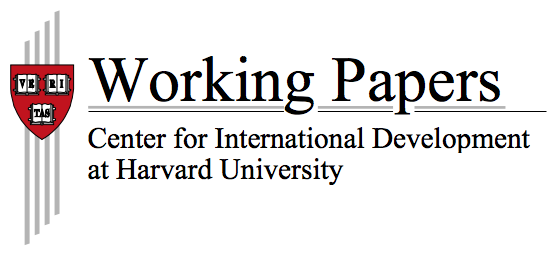Barcelona GSE alum Miguel Ángel Santos (ITFD ’11 and Economics ’12) is Senior Research Fellow at the Center for International Development at Harvard University. He recently won an award for a paper he has written with Harvard Professor Carmen Reinhart. In this post, he shares some background on the paper and some results.
(ITFD ’11 and Economics ’12) is Senior Research Fellow at the Center for International Development at Harvard University. He recently won an award for a paper he has written with Harvard Professor Carmen Reinhart. In this post, he shares some background on the paper and some results.
[slideshare id=46379529&doc=2015-03-25-financialrepressionbalasvdef-150327165631-conversion-gate01]
Background of our paper
I approached Carmen Reinhart last year, while I was a Mason Fellow at the Kennedy School. She said she would be very interested in writing something about Venezuela. It turns out that Venezuela is such an anachronic, chaotic economy, that it allows us to study some economic phenomena in a way no other place does.
My idea was writing about foreign debt sustainability and default probabilities, etc. Carmen suggested otherwise. After all, lots of people have been working on foreign debt sustainability, and it would not be interesting adding to that pile of work.
Instead, she suggested looking into domestic debt default via financial repression, and associating that to leakages in the capital account that in turn weakened the foreign asset position. It goes against some market analysts’ assessment that Venezuela can go wild internally, wild being able to serve its external debt without any trouble. So we used two modified formulas for estimating financial repression for the previous 30 years, differentiating free market years from years of exchange controls.
Our results
We proved that financial repression it is not only significantly higher in periods of exchange controls, but also that the sheer size in Venezuela was astounding, equivalent to more developed countries with much larger internal debt-to-GDP ratios. That is to say, with a smaller stock of domestic debt, the Venezuelan regime needs a lot more repression to collect that. So they actually engineer it, creating mechanisms to produce it: right now inflation is running at a rate five times higher than yields on domestic bonds or bank deposits.
We moved on to show that capital flight, conceived in broader sense, including the over-invoice of imports, was higher in periods of exchange controls. Since financial repression is rampant in periods of controls, people will run risks just to jump out of domestic currency and get into dollars (capital flight). They do that by two means: buying dollar-denominated bonds that the government has been selling in exchange for domestic currency, and over-invoicing imports. We measured the latter by a very innovative process, contrasting Central Bank reported imports with the sum of imports reported at Venezuelan customs. The difference is not only significantly higher across years of controls, but over those years it is 3-4 standard deviations away from the distribution of this error worldwide.
I presented the paper two weeks ago in San Juan, Puerto Rico, within the Business Association of Latin American Studies (BALAS), where it was granted the Sion Raveed Award, given to the best paper of the conference.
Comments welcome from the Barcelona GSE community
CID has published the paper on their working paper series. All comments from the BGSE Alumni and scholars community are welcome at this point. It is a modest paper, dealing with a small, crazy economy. And yet I think it makes a significant contribution.

“From Financial Repression to External Distress: The Case of Venezuela”
Carmen Reinhart and Miguel Angel Santos
Paper abstract and download via Center for International Development at Harvard University
